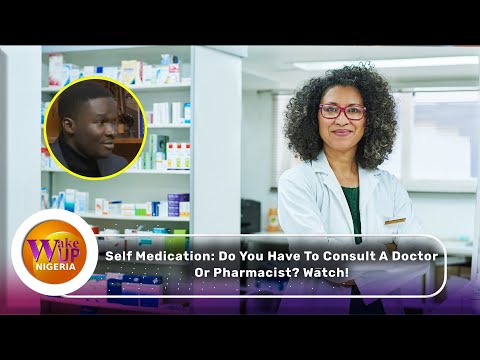In this segment, watch practical ways/tips to living healthy.
Let’s start by understanding what self-medication is all about.
Self-medication is human behavior in which an individual uses a substance or any exogenous influence to self-administer treatment for physical or psychological ailments.
The most widely self-medicated substances are over-the-counter drugs and dietary supplements, which are used to treat common health issues at home.
Here are the potential risks of self-medication practices;
- Incorrect self-diagnosis
- Delays in seeking medical advice when needed
- Infrequent but severe adverse reactions
- Dangerous drug interactions
- Incorrect manner of administration
- Incorrect dosage
- Incorrect choice of therapy
- Masking of severe disease
According to Kenneth Etekakpan, a pharmacist, self-medication can also be classified as drug abuse because you are not consulting with the right authority which is the medical professional who can be a medical doctor or a pharmacist.
What is now the difference between a Pharmacist and a Medical Doctor?
The pharmacist is all about drugs…ANYTHING about drugs involves the pharmacist while a Doctor is someone trained in the art of diagnosing illnesses and the prescription of appropriate medications for such illnesses, including the conduction of surgery where needed.
Another distinction between pharmacists and doctors is that doctors work directly with their patients, whereas pharmacists work in a laboratory setting and away from patients and customers.
However, pharmacists sometimes advise patients and educate customers in retail settings about prescription and over-the-counter medications.
Also, there’s a difference between a chemist and a pharmacist. A pharmacy is a drug or medicine dispensary or a place where drugs are sold.
A chemist is someone who studied chemistry or is involved in chemical research.
See the video below for more!
















